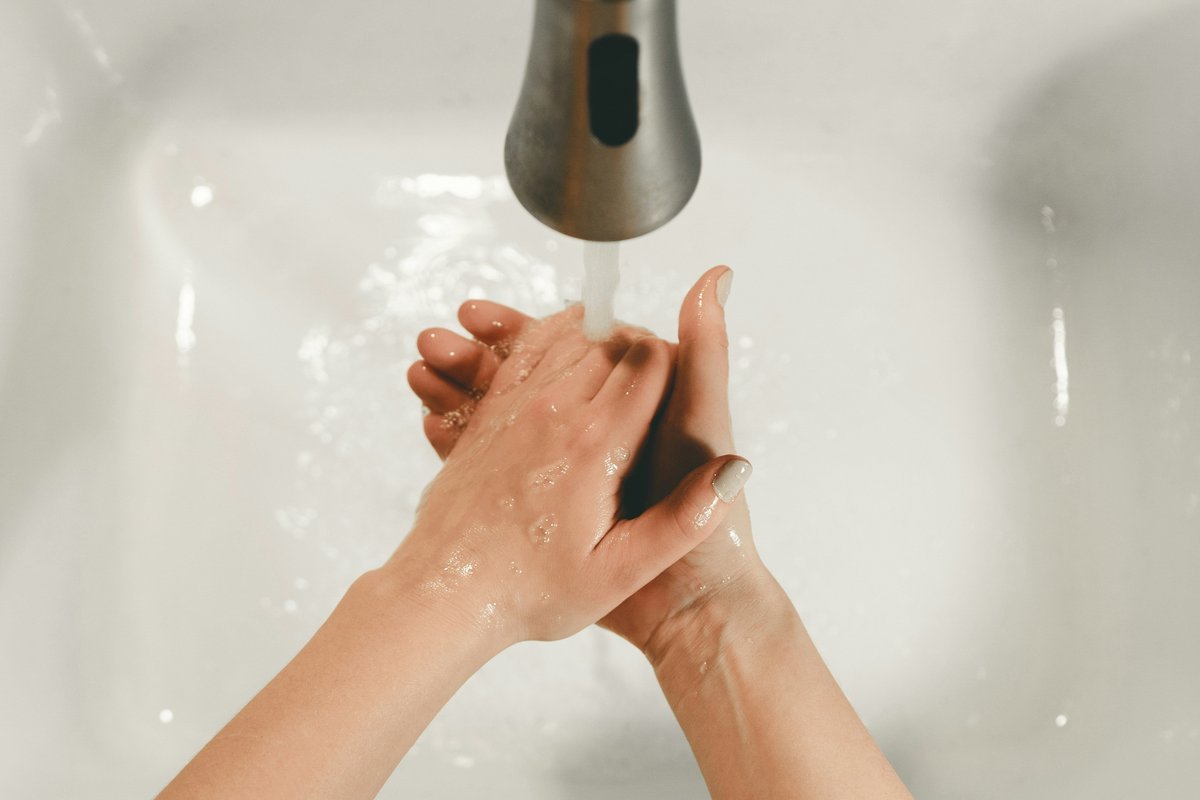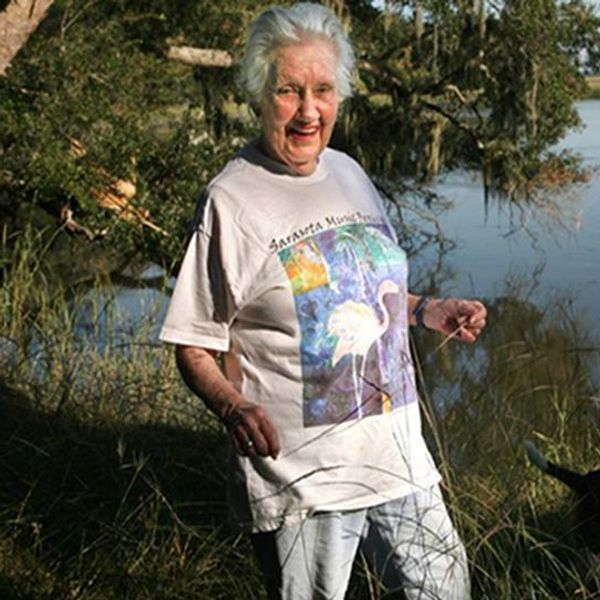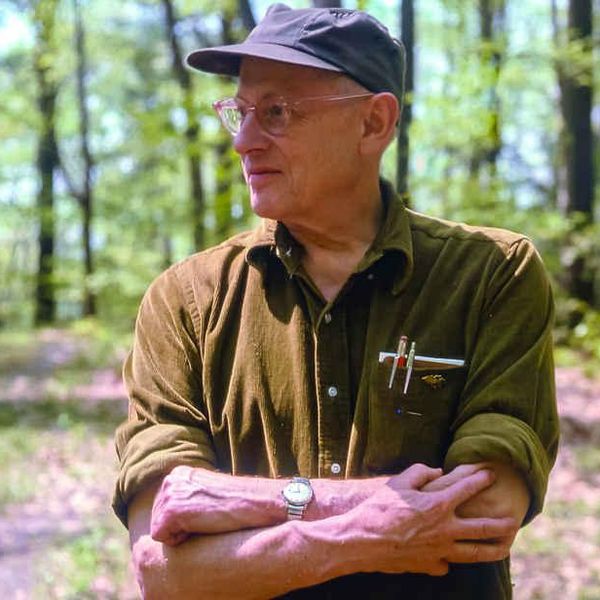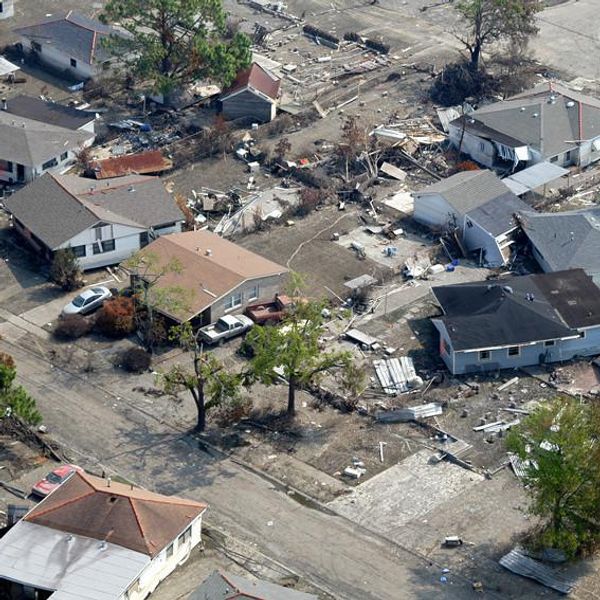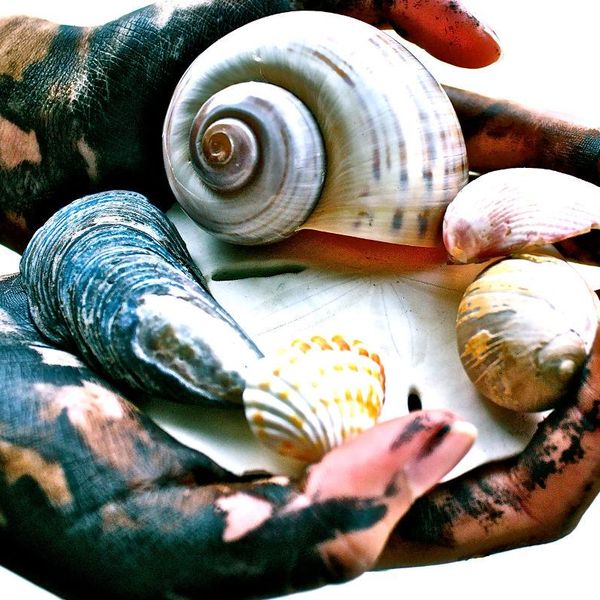As scientists and scholars our work is often polished and thoughtful. Our professional headshots portray a moment in time where we wore our Sunday best (and perhaps applied a filter or two).
The truth is research isn't always glamorous. Sometimes it's hilarious.
It's getting bit by bed bugs in motels; the smell of feces while collecting water samples; or locking your car keys in the trunk and waiting for the locksmith to come rescue you.
In my graduate research lab, we used to call these moments wildcards—because who can actually plan for having to call their supervisor and explain that a storm blew field supplies out of the pick-up truck?
I talked to some scientists about their favorite research bloopers.
1: Lost in Transcription
When working with our collaborators in Mexico to study the impacts of heat exposure and pesticides we agreed to meet on 2/3/20. My partner in crime and I made the journey to Sonora, Mexico, on February 3, 2020. We spend the next few days administering surveys, collecting pesticide samples, and plotting our research timeline. Upon arriving at the laboratory, we unloaded samples and stored everything for safe keeping. A few months later we noticed missing samples and spent many hours trying to track them down, only to realize we had written the dates using the DD/MM/YY annotation, Day, Day, Month, Month, Year, Year. Lesson learned—please stick to one predetermined labeling scheme, to avoid a "Lost in Transcription" moment.
Rietta Wagoner, PhD Student, University of Arizona; and Nicolas Lopez-Galvez, PhD Adjunct faculty - project coordinator, San Diego State University
2: Not one set but two
While packing up cars after a community event, my colleague locked the keys in the trunk of her car. With the front doors locked, no sunroof, and no spare keys available, she did the next best thing and called a locksmith. What are the chances that while the locksmith is working on her car, across the parking lot, someone else locks their keys in a trunk? I'm not sure of the odds but I was that second person. Luckily the locksmith was available, took cash, and later I invested in a travel lanyard that now goes around my neck.
Yoshira Ornelas Van Horne, PhD, Agents of Change in Environmental Justice fellow, Postdoctoral Research Associate at the Division of Environmental Health, Keck School of Medicine, University of Southern California
Twitter: @yoshi_ra
3: Music to my ears
Although there was a predicted chance of rain, a research participant and I decided to carry out our interview on a roof-covered porch. It had been such a beautiful day. No worries, because if it rains, we are protected, right? When a sudden monsoon fell upon us, we realized that the roof was made out of tin, making the sound of the falling rain deafening. Swirling wind sprayed water on us intermittently. I yelled over the noise, "Shall we go inside!?" She laughed and replied, "Oh, it never hurts to get a little wet!" Pro-tips: 1) Try your best to memorize your interviewer script, especially if it is on paper. 2) Place your audio recorder as close to participants as possible and invest in good transcription software. You never know what kind of background noise you will get.
Abrania Marrero, Agents of Change in Environmental Justice fellow, PhD Candidate in Population Health Sciences, Harvard T.H. Chan School of Public Health
Twitter: @abraniamarrero
4: Duct tape, it solves all

Credit: Yoshira Ornelas Van Horne
After months of planning, we finally made it out into the field with a total of 15 boxes, nine bins, and two pick-up trucks to study the impacts of the Gold King Mine Spill. With anything that requires traveling, you know to download offline Google maps, carry first aid kits, and extra water. However, what I wasn't anticipating was that a storm would come out of nowhere and manage to blow the bins out of the back of the pick-up trucks. Luckily the bins and supplies being carried away by the wind were the extras, and we eventually managed to recover them all. Unsolicited advice: invest in tie-down straps, or maybe duct tape.
Rachelle Begay, PhD Student, University of Arizona
5: Fish and guts
While attempting to study contaminants in fish, I convinced a friend from Fish and Wildlife to take me on his boat to make the capturing process easier. We knew the area was a drainage area for sewage sludge, but we were not expecting the smell to be so horrid. The putrid smell combined with the difficulty of catching fish, the 100 percent humidity and 100 degrees Fahrenheit were almost too much; I came very close to spilling my guts. Oh, and did I mention I was pregnant at the time?
Jill E. Johnston, PhD, Assistant Professor of Preventive Medicine, Director of Community Engagement Division of Environmental Health, Keck School of Medicine, University of Southern California
6: Is there a doctor on board?
During my dissertation I spent a lot of time with young grandmas in rural Oklahoma monitoring the soil and air near the Tar Creek Superfund site. On one of those occasions, I noticed a small red dot on my arm. I thought it was a mosquito bite, so I put a Band-Aid over it and went on with the day. One of the Young Grandmas noticed and said "Ami, you need to have Dr. Osborn take a look, you could have been bit by a brown recluse spider, THOSE ARE POISONOUS." We located Dr. Osborne who explained to me that I would have to play the waiting game, and that I could potentially lose my limb, as there is no cure to counteract the venom. To say I was freaked out is an understatement, I waited and waited and waited. No lost limb yet.
Ami Zota ScD, MS, Associate Professor, Founding Director at Agents of Change in Environmental Justice, Department of Environmental and Occupational Health at George Washington University Milken Institute School of Public Health
7: Pictures that lie

Credit: Melissa Furlong
It hadn't happened to me, but then it did, the dreaded flat tire. On one of our trips to collect tree rings in 100+ degree heat, my car's tire decided to give out. I had taken out the spare earlier to fit my sapling equipment (UGHHH regret). Thankfully, I had AAA, which towed us to the nearest shop, but they didn't have my tire size. I was transported to yet another shop, where they were finally able to fix it, and me and my colleagues made the 3+ hr. drive back to campus.
Melissa Furlong, PhD, Assistant Professor at the Department of Community, Environment, and Policy, Mel and Enid Zuckerman College of Public Health, University of Arizona
8: Close en-critters
Conducting fieldwork in rural Gambia meant spending time in the tall grasses, with crocodiles and hippos in the river a couple hundred feet away from my hut. The first night I arrived, my colleagues and I stepped into our hut, moments later one of them screamed. A black creature with who knows how many legs the size of a large grapefruit was racing up the wall, across the ceiling, down and across the floor on a never-ending loop. After waiting an hour, it seemed to have left. Every night we would check the straw ceiling for any snakes that could fall onto our mosquito nets while we slept. By the end of the week, when I walked into the bathroom and saw two scorpions between myself and the toilet, I was completely unphased. Living among small and big wildlife became the norm.
Michelle Gin, MPH, Agents of Change in Environmental Justice fellow, Communications Planner at the Environmental Health Division at Minnesota Department of Health
9: Lost in translation
As a student I was fortunate to visit Suriname and give a presentation focused on maternal fish consumption in a Surinamese cohort. During my presentation, I explained and described different Surinamese fish. One fish in particular is called "bang-bang" but it is pronounced "bong-bong". Unfortunately, I was unaware of the proper pronunciation, so I proceeded to pronounce it the way it was spelled. Throughout the presentation, I received many head nods and smiles from the Surinamese students. At the end of my presentation, a Surinamese student congratulated me on a wonderful presentation but proceeded to tell me that the way I pronounced "bang-bang" in Dutch meant vagina. While I thought I was talking about fish throughout my presentation I was actually saying vagina the entire time.
Cecilia Sara Alcala, PhD, MPH, Postdoctoral Fellow, Icahn School of Medicine at Mount Sinai
Twitter: @DrCAlcala
10: Trip of a lifetime
Imagine it, geology fieldwork in the Isle of Arran, Scotland, what a view, what an adventure, so picturesque. The first cardinal rule of fieldwork, wear appropriate attire, second cardinal rule of fieldwork, document everything, like my dreaded faceplant in front of the other students. In case you are wondering, I have since recovered.
Lauren Johnson, MPH Candidate, Environmental Health Science and Policy, George Washington University Milken Institute School of Public Health
This article was produced through the Agents of Change in Environmental Justice fellowship. Agents of Change empowers emerging leaders from historically excluded backgrounds in science and academia to reimagine solutions for a just and healthy planet.
Have a research blooper? Share it by tagging @EnvirHealthNews & @AgentsChangeEJ use the tagline #wildcardEHS
Banner photo credit: Sam Balye/Unsplash






